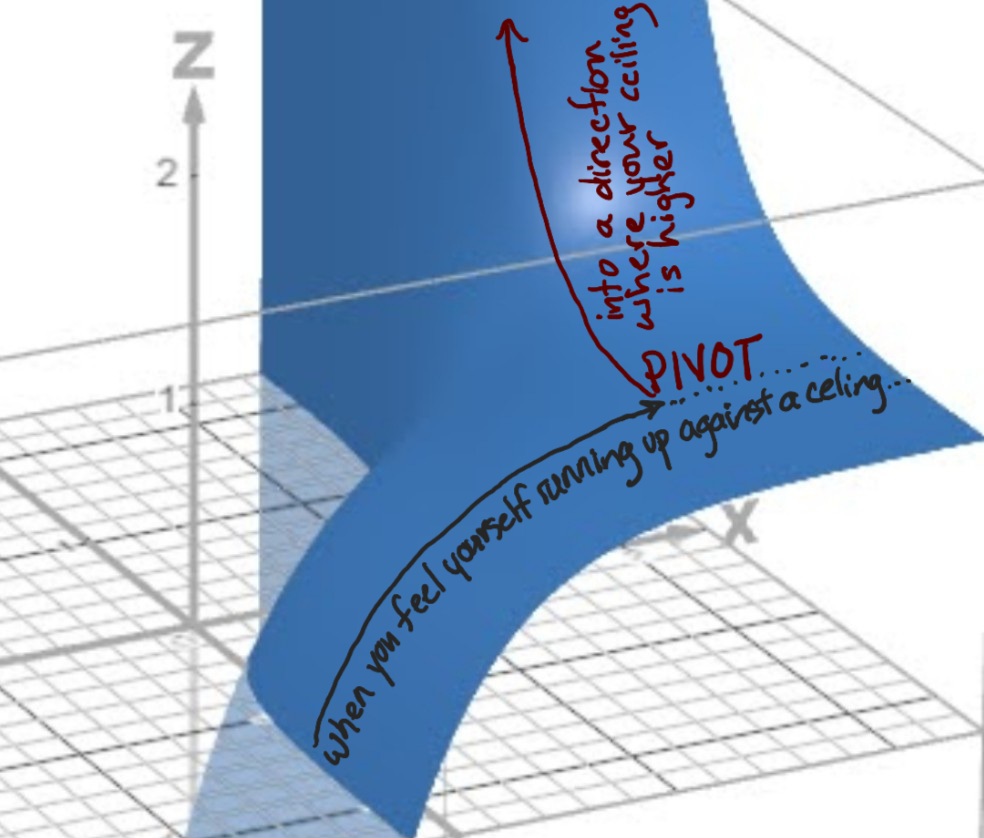What to Do When Math Gets Too Hard
In general, when you feel yourself running up against a ceiling in life, the solution is typically to pivot and into a direction where the ceiling is higher.
Cross-posted from here.
Want to get notified about new posts? Join the mailing list and follow on X/Twitter.
Math gets hard and unintuitive for everyone at some point, and that point is different for everyone – for some people that’s algebra, for other people it’s calculus, for others it’s real analysis, for others it’s algebraic topology, for others it’s research-level math, … you get the idea. There’s this same gradation even within research-level math problems.
Sometimes people hit that point early due to ineffective or inconsistent practice techniques. But even if you practice effectively and consistently, a ceiling still exists.
It’s kind of like sports. Few people practice effectively and consistently enough to reach their athletic potential, but it’s just a fact of life that most people could not become professional basketball players even with 100% effective and consistent practice.
How do you know when you’re hitting a ceiling? You can’t detect it with 100% certainty. But if you’re practicing effectively and consistently, and you get stuck in a plateau, and one-on-one training with a coach or tutor doesn’t break you out of that plateau, then it’s pretty likely.
What to do when you hit a ceiling
In general, when you feel yourself running up against a ceiling in life, the solution is typically to pivot and into a direction where the ceiling is higher.
For instance, the story of many a quantitative software engineer goes like this:
- loved math growing up and wanted to be a mathematician
- realized during undergrad or grad school that they had lost their "edge" compared to other aspiring mathematicians
- also realized that they have a knack for coding and interest in some applied domain, and that the problems that need to be solved there boil down to interesting math that most people in software don't have the math chops for
- pivoted in that direction where their ceiling is higher
One thing to watch out for
If you’re focusing on competition math (e.g. Math Olympiad) and you find yourself running up against a ceiling there, that does not mean that you’ve hit your overall mathematical ceiling. Competition math is a totally different thing from the rest of math.
Perhaps counterintuitively, it’s a lot easier to make progress by continuing into more advanced subjects (e.g. calculus, linear algebra, differential equations, etc) and layering on top of your content knowledge than it is to make progress improving your performance in competition math.
Competition math is very g-loaded, and the point is separate students who have loads of underlying mathematical talent from students who learned a bunch of math early but don’t have as much talent.
In fact, it’s pretty common for people to learn and apply university-level math yet not be able to solve competition problems. You could very well improve your mathematical knowledge and capability to do things with math, and not have it carry over much to competition problems.
Follow-Up Questions
Q: This is kinda like gradient ascent, right?
Exactly. To take the gradient ascent analogy even further – if your space (of skills, talents, experiences) high-dimensional enough, you don’t really get trapped under ceilings, you just hit saddle(ish) points and re-orient and keep climbing.

Want to get notified about new posts? Join the mailing list and follow on X/Twitter.